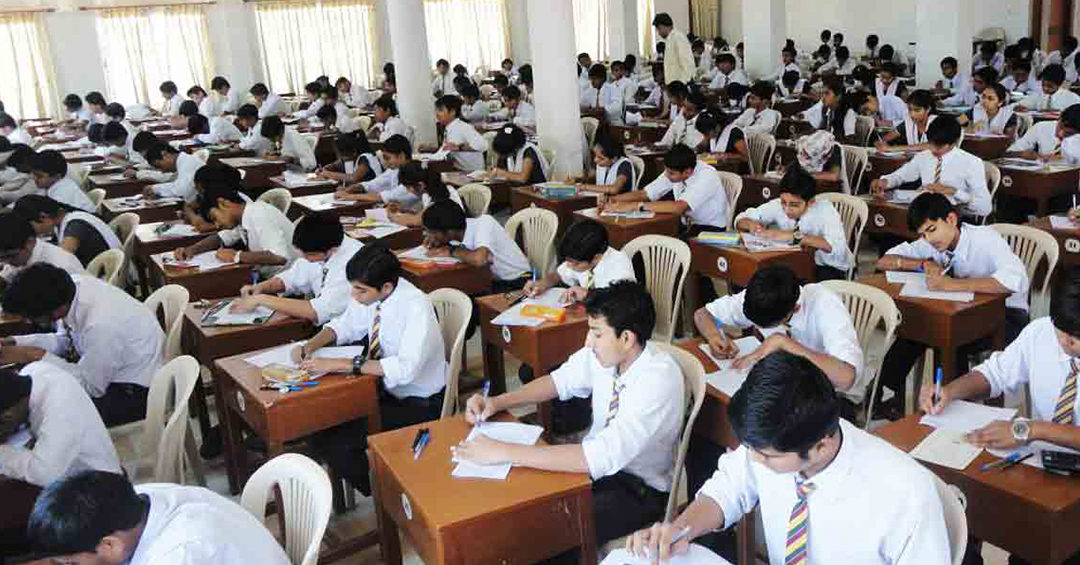Priyanka Bhattacharyya, Clinical Psychologist and Training Coordinator for Narrative Practices at MHF Kolkata speaks on various mental disturbances that a student might face due to examination stress and how to address suicidal tendencies

PRIYANKA BHATTACHARYYA
Examinations are stressful in general. During under-graduate studies, youngsters are for the first time exposed to a world outside the safe and cushy school walls. Peers at this level are high achievers from different institutions. This is especially true for courses requiring high marks at entry level. It is a big jump of the self who is used to feeling good, at times a topper in class, to being one of the many, who have or are excelling in college or training institutions.
Added to this is the fact that the cost of these studies is high and therefore the ramifications of failure are financially challenging. The ‘coming first’ which may have been a companion, gradually becomes a distant fantasy. Being enrolled in such programmes in itself, has a burden of expectation-achievement gap.
This sort of an incubation, that the examination situation creates, does not always precipitate into suicidal behavior in every person. It brings us to the query: What tips the balance? The answer to that is in a particular situation, where a person’s unfulfilled needs and frustrations are faced with the individual’s perception of the environment as unsupportive and alienating. How hopeful a person is able to feel, at this point? It depends on the degree to which a person will make efforts to solve problems in creative ways rather than be with just one choice.
In the context of suicide, there are well researched variables that also fall in line with what we find in clinical practice, that stand out as significant. These are degree of hopelessness, impulsivity, a condition of ‘psychache’ and alienation.
Psychache, a neologism coined by suicidologist Edwin Shneidman, is unbearable psychological pain—hurt, anguish, soreness, and aching. While, Alienation brings feelings of estrangement from some aspect of a person’s existence (nature, others and self), resulting in loneliness, emptiness, and despair.
Psychache +Alienation =Suicidality
On delving into the concept of psychache and alienation, it is important to think that the examination situation itself may or may not be the cause of pain. There may be other things going on in the person’s life that can be the source of it. Sometimes there may be family conflicts, relationship problems, abusive situations, altered emotional thresholds, that tend to amplify the effects of examination stress on the person.
The feeling of isolation, on the other hand, may be from one’s internal sense of self, society or nature. The typical story of the undergraduate student is dealing with studying in an environmental of competition, which may be isolating if not done in groups. Limited time and money resources also reduces access to reliefs like engaging in get togethers, time away, home visits, or recreation group interactions and so on. There is a situation where the person’s already existing emotional vulnerability is amplified by the examination stress. Sometimes the examination/studying, itself loses its personal meaning and hence becomes difficult to work hard for, creating a situation of internal isolation.
Suicidality can sometimes weigh heavy when shrouded in the diagnostic words of major depression. What one feels then is that: “I do not have much power over it, I am inflicted with a disease, I do not have any agency upon.” It is rather viewed as a choice one makes, which puts an end to the ongoing, unbearable pain, thereby bringing relief. When we view Suicidality in this manner, two things happen:
- Sufferer becomes a choice maker
- Makes visible that there may be more solutions or pathways to achieve relief.
HELP AT HAND
- Listen to the person more than immediately advising.
- Accept, rather than antagonize. Fact is, suicide is indeed a choice. Just not the only one perhaps.
- Address isolation. Do not keep them out of sight, look out for each other. Afternoons, early mornings, hostel holidays are typical settings where isolation feelings magnify. Sights and sounds that are mundane may take on a different meaning. Reach out to another person easily accessible in institutions in form of helpline a and help desks.
- At an individual level one can take a preventive footing. A well-rounded activity schedule, keeping connected socially, being in touch with nature, reasons for living and achieving clarity on the meaning of the study/course/examination.
- Flexibility of thought is a welcome change from the inflexible but definitive way to bring relief from the pain. There may be other solutions to the problem that can be made visible to the person.
- Emotional disturbances need to be assessed and medical intervention is one of the things that are recommended and hence being in touch with a doctor becomes mandatory.
The source of the psychache needs to be tapped by someone else as it may be difficult for the person himself or herself to have a clear self-vision and self-expression. That happens when persons find it comfortable to speak about difficult situations in their lives or their frustration, angst, painful experiences. It may be so that these are considered secret, either in a shameful or protective way, hidden facts and hence may take time to reveal. The best chances of that happening is when we do not appear critical, overly emotional or appearing to be unable to fix the problem. Keeping a stance of curiosity helps.
The ache needs to be healed.





















